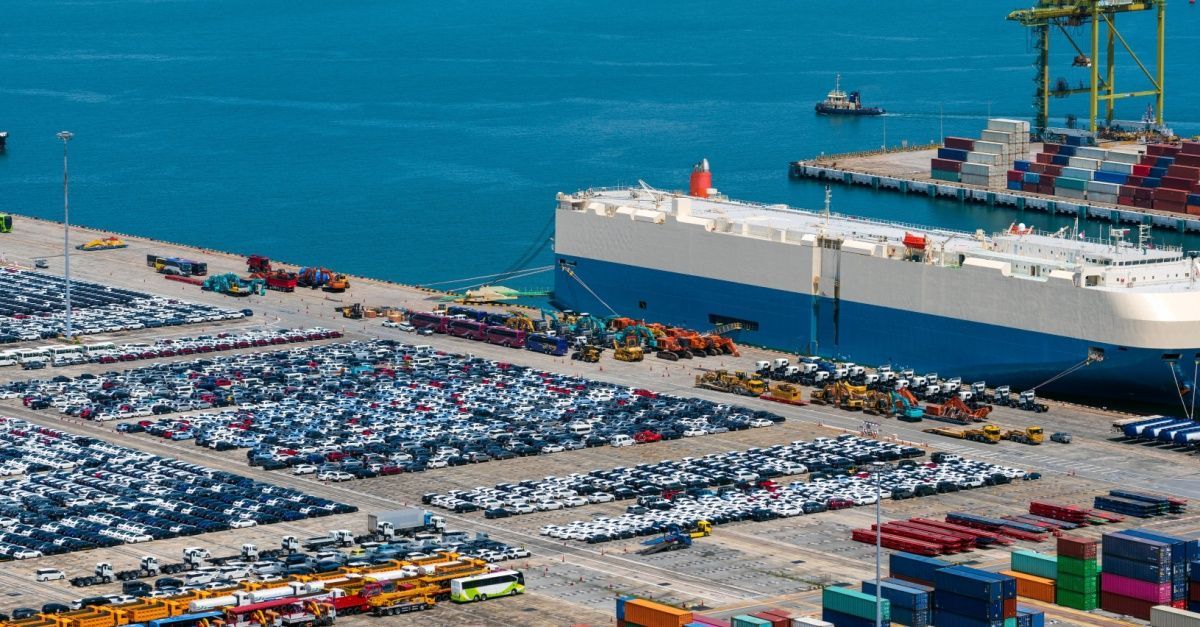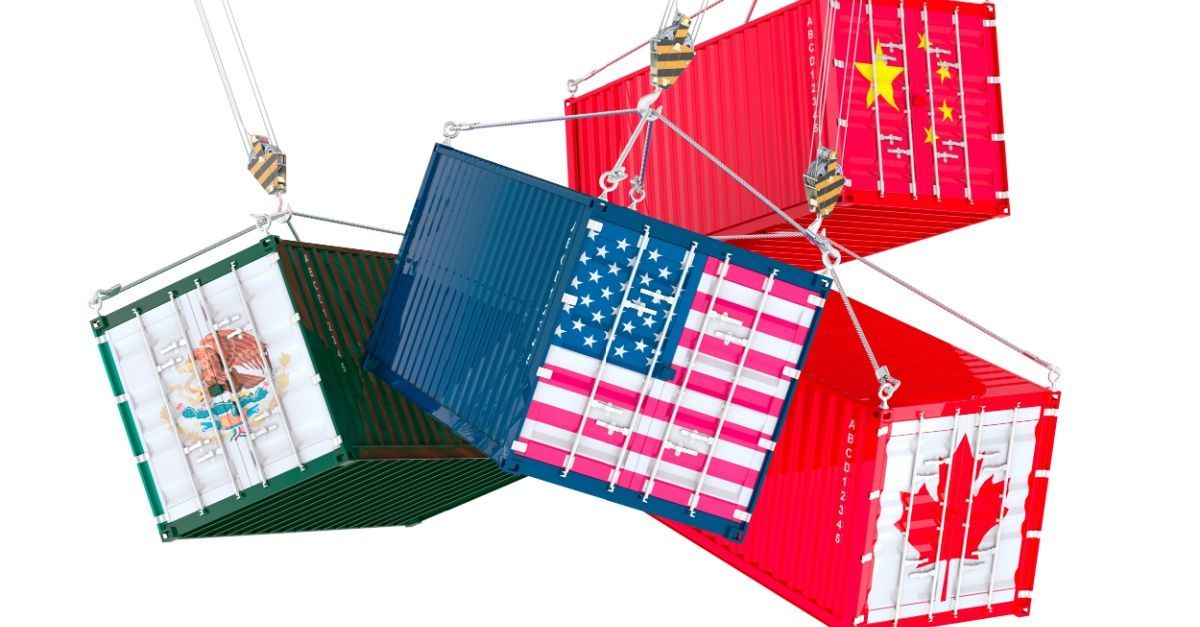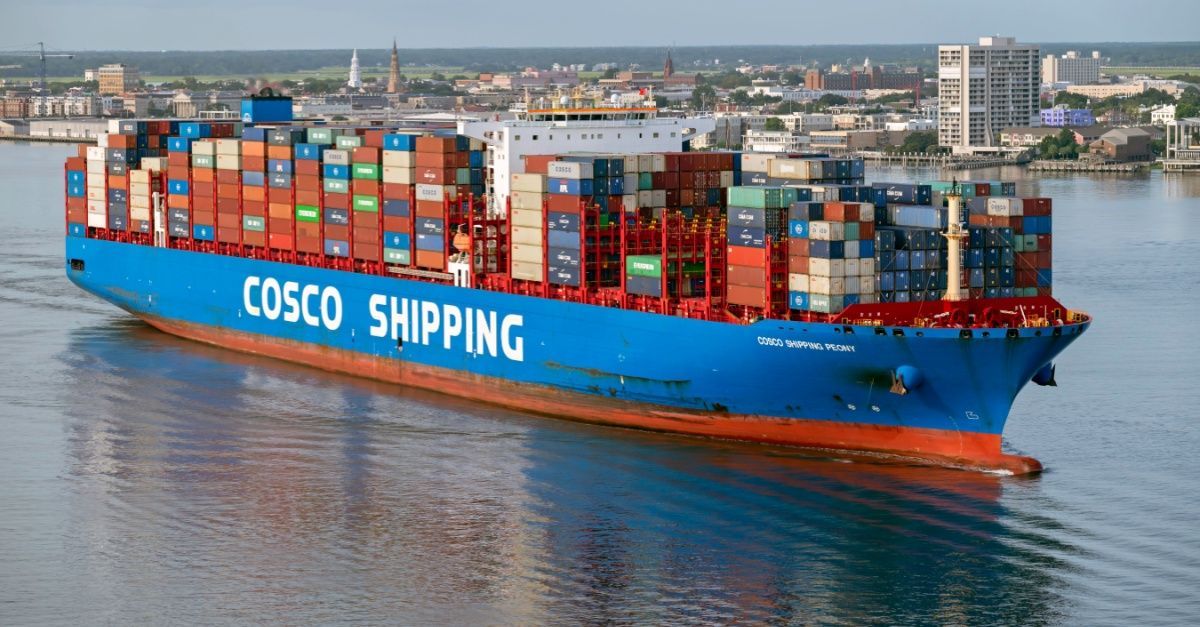Looming Strike at East and Gulf Coasts Ports Amid Falling Fuel Prices
Blog Post CTA
We will get back to you as soon as possible.
Please try again later.
At this point, the impending International Longshoremen’s Association (ILA) strike, which will impact container port operations from Boston to Houston, is likely inevitable. With major consequences bound to shake up the economy and supply chains across various industries, it is unclear how stakeholders can avoid it.
Diesel prices continue to decline amid bearish markets driven by factors like Libya's reduced oil exports and notable short positions across the market. Futures, on the other hand, have rebounded slightly, prompting a major bank to revise its downward forecast. Explore all this, and much more, in this edition of the newsletter.
Strike Threat at East and Gulf Coast Ports Sparks Concern
The impending contract expiration between the International Longshoremen’s Association (ILA) and the United States Maritime Alliance is poised to shake up the shipping world. The current agreement, which covers container ports from Maine to Texas, will end on Sep. 30. Still, with no formal contract negotiations held for months, the threat of a major disruption looms as the deadline approaches.
The union rhetoric continues to intensify, with the ILA preparing for a strike beyond just a "potential" at this point. In anticipation of disruptions, retailers have frontloaded shipments and continue to shift cargo to the West Coast ports. However, that may not be enough to avoid disruptions and their
ripple effects across various supply chains. They could hurt imports and exports and lead to backlogs.
The obvious victims are delayed holiday shipments, partial or complete halting of manufacturing supply chains, and agricultural exports. Experts are warning that such a strike could have significant economic repercussions, similar to the 2002 West Coast port lockout, which cost the U.S. economy $1 billion per day.
Bearish Market Sees Diesel Prices Decline for 10th Straight Week
Diesel prices are still searching for a bottom as the average weekly retail diesel price dropped for the tenth consecutive week. Today, the average retail price sits at $3.526 per gallon, down by 33.9 cents over that period. The current benchmark price is about $1.10 lower than a year ago.
The recent decline in retail prices mirrors the drop in ultra-low sulfur diesel (ULSD) futures, which hit a low of $2.058 per gallon on September 10. However, since then, ULSD prices have slightly rebounded, closing at $2.0958 on Monday. Despite this, the market remains largely bearish, driven by factors like Libya's reduced oil exports and a notable increase in short positions in the
Brent crude market.
UBS has also revised its oil price forecasts downward, projecting $75 per barrel for Brent crude in Q4, down from a previous estimate of $83.
Retailers and Manufacturers Continue to Brace for Potential Disruption
Retailers and manufacturers brace for the potential impact of the multibillion-dollar disruption of their supply chains and the economy if the ILA goes on strike starting October 1. The looming strike will primarily affect major East Coast and Gulf Coast ports. Still, considering that many businesses are already redirecting shipments to the West Coast, it could lead to massive congestion at these ports.
The current contract between the ILA and the United States Maritime Alliance, which covers 25,000 workers and also represents port management, expires on September 30. Businesses and supply chains have spent months preparing for this, with many frontloading shipments or shifting imports to the West Coast to avoid disruptions during the peak holiday season. However, it is increasingly clear that this only slightly solves the problem.
A strike would impact
billions of dollars worth of imports and exports, and stakeholders are currently panicking. Retailers fear delays in holiday shipments, manufacturers worry about supply chain breakdowns, and farmers could lose access to overseas markets.
The National Retail Federation (NRF) and the National Association of Manufacturers (NAM) have warned that a prolonged strike could raise costs, disrupt supply chains, and result in job losses.
Freight Market Remains in Trough as Expenditures Decline in August
Data from August 2024 Cass Information Systems shows the U.S. freight market is still experiencing a trough. Shipments declined 1.9% year-over-year (y/y), following a 1.1% y/y decline in July. However, the drop was smaller than expected.
On the other hand, seasonally adjusted shipments improved by 1% from July, marking a second consecutive monthly increase, though they remain 12.3% below 2022 levels. Freight expenditures dropped 9% year over year and 1.3% from July, reflecting the overall decline in freight spending, with "inferred freight rates" down 7% year over year.
The Cass Truckload Linehaul Index, which tracks core linehaul rates excluding fuel surcharges, also showed a 3.3% y/y decline. Market overcapacity has kept bids competitive, resulting in stagnant contract freight rates despite a slight increase in spot rates. According to industry leaders and experts, the
industry continues to recover slowly from a prolonged recession, with no significant market inflection yet.
Industry Unites to Electrify Interstate 10 Trucking Corridor For Zero-Emission Freight
A coalition of industry giants, including Microsoft, PepsiCo, Maersk, DB Schenker, and AIT Worldwide, is spearheading an initiative to electrify the Interstate 10 trucking corridor, which runs from Los Angeles to El Paso, Texas. The effort focuses on developing charging infrastructure for long-haul battery-electric trucks along this key trade route, which connects the nation’s busiest ports to the second-largest border crossing.
The project, part of the
U.S. government's National Zero-Emission Freight Corridor Strategy, is supported by TeraWatt Infrastructure, which will provide charging solutions at six hubs along I-10. PepsiCo and Maersk, with their massive fleets and ambitious sustainability goals, are leading the charge, along with DB Schenker, which was recently acquired by DSV.
The initiative reflects a broader effort to build a sustainable logistics framework and accelerate truck electrification, contributing to significant carbon reduction. The I-10 pilot project is set to create a blueprint for scaling fleet electrification across the country.
Alabama Jury Awards $160 Million in Truck Rollover Case Against Daimler
In a nuclear verdict that shocked the freight world, an Alabama jury awarded $160 million in damages to Leonard Wiley Streets, who became a quadriplegic after a 2022 rollover accident involving a Western Star truck manufactured by Daimler Truck North America. The accident occurred when another vehicle veered into Streets' lane, causing his truck to overturn.
The jury in the case awarded Streets $75 million in compensatory damages and $75 million in punitive damages, while his wife received $10 million for loss of consortium. The case centered on allegations that design flaws in the truck's roof structure and suspension seat contributed to Streets' severe injury, though Daimler disputed the claims and plans to appeal.
Despite the shock of the verdict, it is just the second major product liability verdict against truck manufacturers in recent weeks, following a $462 million verdict in St. Louis against Wabash National Corp.
Biden Administration Proposes De Minimis Reform to Curb Abuse
The de minimis exemption allows imports below $800 to avoid duties and taxes, but pressure has been mounting on the Biden-Harris administration to reform or eliminate it. The administration has pushed new proposals that would eliminate de minimis eligibility for shipments covered by Section 301, 201, and 232 tariffs to prevent foreign businesses, particularly from China, from exploiting the exemption.
Key changes include enhanced information collection, requiring importers to file tariff classification numbers and certificates of compliance electronically with U.S. Customs. The administration also called for Congressional action to pass additional de minimis reforms, focusing on protecting U.S. workers and industries, particularly the textile and apparel sectors.
Finally, It is important to note that
multiple legislative proposals related to de minimis reform have been introduced but have not yet been passed.
Navigating The Freight Market With Entourage Freight Solutions
Entourage Freight Solutions stands out with its extensive background and expertise in food service logistics. Our unique approach, honed in the food supply chain, ensures an unmatched service level and extreme attention to detail in meeting all our shippers’ needs.
Our platforms use the latest cloud-based, GPS-enabled technologies. They can track drivers regardless of location, continuously reroute shipments based on the dynamics at play, such as weather or traffic, and account for real-time changes in market rates. At EFS, we offer a broad range of unsurpassed services. These include:
Full Truck Load (FTL): For shipment requiring a dedicated whole truckload.- Less than truckload (LTL): For companies moving multiple LTL shipments to different locations or consolidating LTL goods from other companies to get a lower all-in rate.
- Refrigerated Trucking or “Reefer” Transportation: Leveraged to avoid spoilage and damage to temperature-sensitive goods.
- Cross Docking: With locations in Shelby, Ohio, Cedar Rapids, Iowa, and Romulus, Michigan, that serve as cross-docks for strategic consolidation, storage, and end-to-end distribution programs.
Request a quote today to see how Entourage Freight Solutions can help with your freight movement and other supply chain needs.









